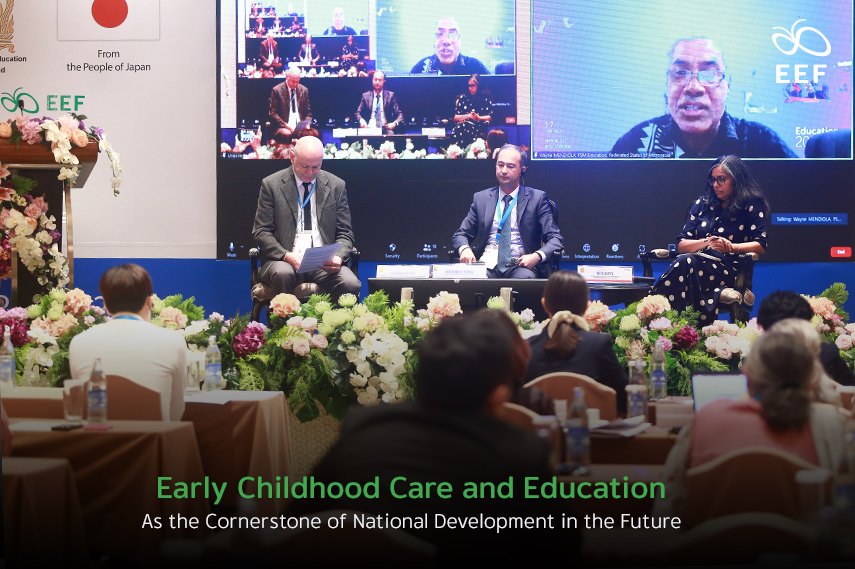
The pandemic has an unfathomable impact on global education, sending a jolt across every country’s educational systems. According to the Early Childhood Care and Education (ECCE), an organization dedicated to enhancing the well-being of young children in the pre-elementary years so they to be appropriately cared for and develop according to their ages, over 70% of pre-elementary childcare centers have been closed; only 9% of child care teachers are trained via telecommuting, and only 3% of pre-elementary-aged child care centers are trained in crisis management. Along with the pandemic crisis and its effects on young children’s mental development, climate change also poses an adverse risk to their physical, cognitive, and psychological development.
Only two-thirds of South Asian children between the ages of 36 and 59 months are being cared for, developed, and monitored, as added by Clifford Meyers, board member of the Asia-Pacific Regional Network for Early Childhood Children (ARNEC). There is a significant disparity in access to care and education of pre-elementary children between developed and developing countries; 83% of children in developed countries have such access, compared to only 22% of pre-elementary-aged children in developing countries. To increase this group of children’s access to educational opportunities, reopening pre-elementary childcare centers is a priority post-COVID-19. In addition, as proposed by the board member, the crisis’s impacts on young children as well as its coping strategies must be studied, and young children’s commutes from their communities to care centers be supported to make things easier and ease parents’ concerns when the centers resume normal operations.
The number of teachers is vital to the recovery and gap reduction efforts, as suggested by Mr.Nodir Muslitdinov, deputy minister of Pre-Elementary Education of the Republic of Uzbekistan. Over the past few years, the number of pre-elementary care teachers has increased exponentially, and so has the number of universities offering pre-elementary care courses. The country also has a mobile training center to reach and train teachers in small towns.
Another crucial aspect, as added by the deputy minister, is to ensure a smooth transition to elementary school. Uzbekistan has a goal that by 2025 all children under the age of 6 must go to school. In the last year before starting there, children must be enrolled in a program designed to help them become accustomed to attending elementary school. Besides, the government allocated up to 25% of the total education budget to pre-elementary children’s care and education, ensuring that they not only learn and play in the appropriate settings but also develop social and communication skills with others.
Governments’ giving high priority to the care and development of pre-elementary children, as added on the deputy minister’s statement by Wayne Mendiola, assistant secretary of Education for the Federated States of Micronesia (FSM), will help them become aware of how climate change can have negative effects on them, leading to their action to reduce these impacts in the future.
Source: 2ND ASIA-PACIFIC REGIONAL EDUCATION MINISTER’S CONFERENCE (APREMC II) – Session 7

